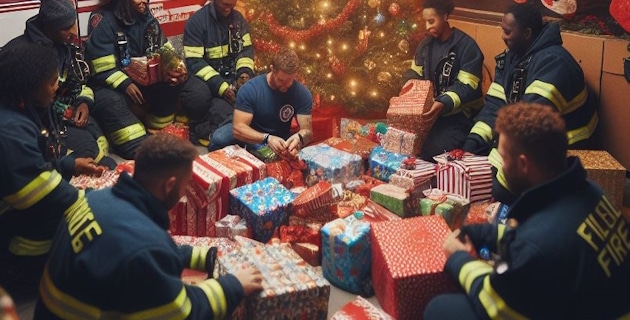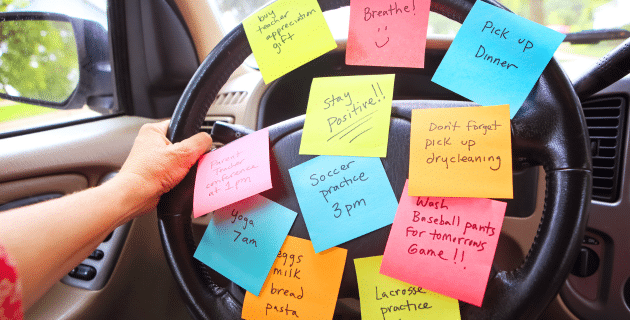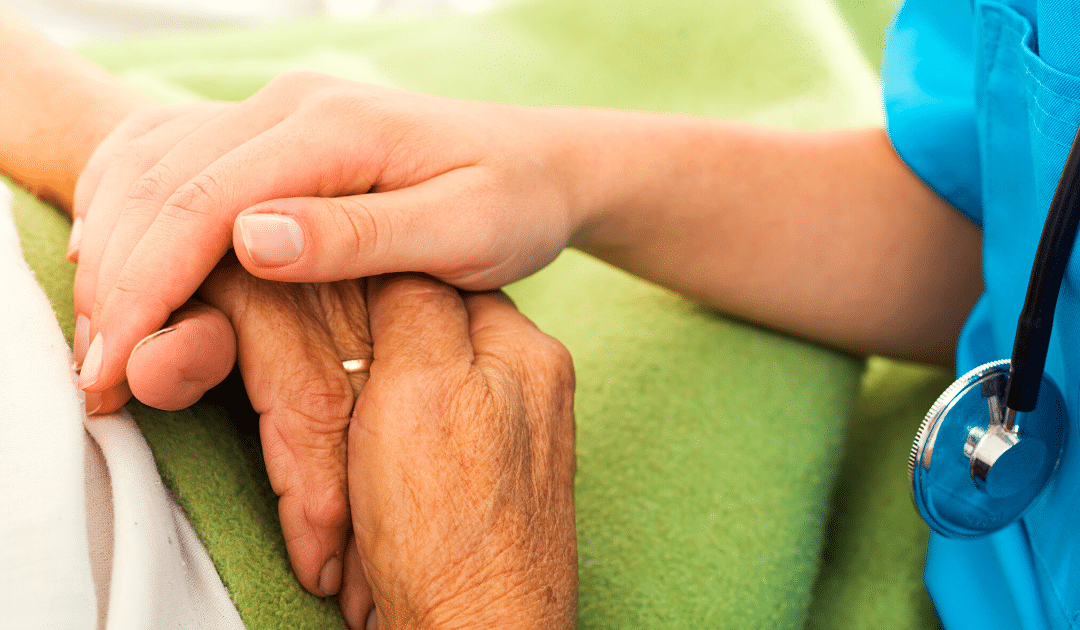
by California Casualty | Auto Insurance Info, Firefighters, Nurses, Peace Officers |
The winter season is a season of joy, celebration, and togetherness for many of us. For first responders — police, firefighters, nurses, paramedics – this time of year looks very different.
Winter is the time when emergencies increase. Icy conditions cause accidents. There are more heart attacks in cold temperatures. House fires are more common. Thefts are too. All of this keeps first responders working hard, and often extra hours. That means they sacrifice time with their own families to keep us safe.
Here are some thoughtful ways to show appreciation to our local heroes this holiday season and throughout the year. Remember, the key is to express genuine gratitude and to make these gestures personal and heartfelt.
Deliver some holiday cheer.
Make or buy some food or treats. Drop off coffee for the morning shift. Include donuts or pastries. A soft pretzel or cookie tray is always fun, and a homemade hot meal goes a long way. You also can drop off gift cards to local restaurants. Include cash to cover delivery fees and tips.
Bring a basket.
It’s cold out there. Put together an appreciation basket that includes the things that will make life easier for first responders doing their jobs this winter. Consider hand warmers, ChapStick, hand lotion, cough drops or hard candy, tissue packs, hot cocoa packets, and tea bags. Discover some more ideas in our blog on a winter survival kit.
Send notes and pictures.
Encourage your family and friends, especially children, to create handmade thank-you cards expressing appreciation for the hard work of first responders. Collect these cards and deliver them to the local police station, fire department, or hospital. Don’t forget that a personal handwritten note by anyone of any age is always appreciated.
Share your gratitude.
Write a letter to your local newspaper, sharing a positive story about the service provided by first responders in your community. Use social media platforms to thank your local first responders. Your positive stories can inspire others to express their gratitude as well.
Host a community appreciation event.
Coordinate a community gathering or event to express gratitude. This could be a small ceremony, a casual get-together, or a potluck dinner where community members can interact with first responders in a relaxed setting.
Offer your skills or services.
If you have a skill or service that could benefit first responders, consider offering it as a token of appreciation. This could range from providing free maintenance services to organizing a free workshop on stress management or well-being.
Support first responder charities.
Contribute to charities or organizations that support the well-being of first responders. This could involve monetary donations, volunteering your time, or organizing a fundraising event to benefit these essential workers.
Collaborate with local businesses.
Partner with local businesses to offer discounts or special promotions for first responders, police, firefighters, and nurses. Not only does this show appreciation but it also supports local businesses.
Volunteer at the station.
Offer your time by volunteering at the local police station, firehouse, or hospital. This could involve helping with administrative tasks, organizing events, or simply being a supportive presence.
This article is furnished by California Casualty, providing auto and home insurance to educators, law enforcement officers, firefighters, and nurses. Get a quote at 1.866.704.8614 or www.calcas.com.

by California Casualty | Educators, Firefighters, Health, Nurses, Peace Officers |
If the winter months get you down, you’re not alone. Seasonal Affective Disorder (SAD) affects millions of people, and it’s more than just the winter blues. It can affect your mental and physical health.
Here’s what you need to know about SAD, including how to recognize signs and symptoms, some available treatments, and how to help those around you if you think they suffer from this condition.
What is SAD?
Seasonal Affective Disorder is a type of depression. It is more than feeling sad or unhappy, and it is not a condition that can be wished away. Symptoms start in the late fall and continue into the winter months. They are most severe during December, January, and February. Generally, SAD resolves itself during the light-filled days of spring. (There also is a form of summer SAD, thought to be caused by the heat, humidity, and allergies. Summer SAD is much less common.) SAD usually starts in adulthood. It is rare among people who are under age 20. It is more common among women than men.
What causes SAD?
The exact cause is not known, but it is thought that SAD is linked to reduced exposure to sunlight. Light stimulates the hormone, serotonin, in our brain which makes us feel happy. Increased darkness on the other hand prompts the brain to make more melatonin, causing sleepiness and reduced energy.
What are the signs of SAD?
SAD can affect how you feel, think, and behave. The symptoms are persistent and can be severe. While not every person experiences all the symptoms, here are some common ones for winter SAD.
- Losing interest in activities: If the activities that usually interest you lose their appeal, that’s a symptom of a low mood or depression.
- Low energy and sluggishness: You may find it difficult to muster the energy to do the most basic tasks. You might experience extreme fatigue.
- Sleeping too much: You find yourself sleeping more than usual, and you have difficulty waking up. You may experience daytime drowsiness.
- Appetite changes: You crave the mood and energy boosting comfort of carbs. However, overloading on carbs can lead to weight gain.
- Difficulty concentrating: You may be unable to focus and have trouble thinking clearly.
- Negative thinking: You may feel hopeless, worthless, or even suicidal. You might be anxious and irritable.
What are options for treatment?
Without treatment, SAD can last months. However, most people who seek help can see improvement in a matter of weeks. The symptoms of SAD may look like other mental health conditions, so it’s important to get a diagnosis. A doctor or mental health professional can diagnose SAD and offer options for treatment. Treatments may include:
- Light therapy: This involves sitting in front of a special light in a lightbox or panel for a specific amount of time each day.
- Sunlight exposure: Spending more time outside during daylight hours can help. Consider a daily walk or outdoor exercise.
- Psychotherapy: Talk therapy can help you to understand SAD and manage its symptoms from anxiety to depression.
- Medications: ln some cases, antidepressants may be prescribed to correct the chemical imbalance caused by SAD.
Here are some ways to help prevent SAD.
You can take steps to prepare for winter SAD, which may help to reduce its effects.
- It may be tempting to go into hibernation mode when it starts to become dark early. However, that can perpetuate the feelings of depression. Instead, plan activities to stay social. This will help to boost your mood.
- Exercise regularly. If you can exercise in the sunlight, that’s a double boost.
- Eat a healthy balanced diet. If you’re tempted by carbs for a quick energy boost, go for complex carbohydrates instead. For example, choose whole grain breads and fruits over sweets and chips.
- Maintain a consistent sleep routine. Avoid excessive amounts of caffeine and alcohol, especially before bed.
Finally, seek professional help if your symptoms persist. SAD is treatable, and fortunately, does not last forever.
This article is furnished by California Casualty, providing auto and home insurance to educators, law enforcement officers, firefighters, and nurses. Get a quote at 1.866.704.8614 or www.calcas.com.

by California Casualty | Educators, Firefighters, Nurses, Peace Officers |
It’s time to stop and reflect on the good that is around us. Starting each day with an inspiring message of gratitude not only sets the tone for positivity, it also benefits you in numerous ways. Being thankful increases feelings of happiness and optimism. Gratitude fosters positive self-esteem and improves relationships. It helps to reduce stress.
Embrace the power of gratitude with these inspiring quotes.
- “There are always flowers for those who want to see them.” – Henri Matisse
- “If you want to find happiness, find gratitude.” – Steve Maraboli
- “Enjoy the little things for one day you may look back and realize they were the big things.” – Robert Brault
- “Some people are always grumbling because roses have thorns; I am thankful that thorns have roses.” – Alphonse Karr
- “Gratitude can transform common days into thanksgivings, turn routine jobs into joy, and change ordinary opportunities into blessings.” – William Arthur Ward
- “Let us be grateful to people who make us happy; they are the charming gardeners who make our souls blossom.” – Marcel Proust
- “Gratitude turns what we have into enough.” – Aesop
- “The more grateful I am, the more beauty I see.” – Special Olympics CEO Mary Davis
- “An attitude of gratitude brings great things.” – Yogi Bhajan
- “The single greatest thing you can do to change your life today would be to start being grateful for what you have right now.” – Oprah Winfrey
- “Remember that what you now have was once among the things that you had hoped for.” – Epicurus
- “Sometimes we should express our gratitude for the small and simple things like the scent of the rain, the taste of your favorite food, or the sound of a loved one’s voice.” – Joseph B. Wirthlin
- “This is a wonderful day. I have never seen this one before.” – Maya Angelou
- “We must find time to stop and thank the people who make a difference in our lives.” – John F. Kennedy
- “We often take for granted the very things that most deserve our gratitude.” – Cynthia Ozick
- “Learn to be thankful for what you already have, while you pursue all that you want.” – Jim Rohn
- “Gratitude sweetens even the smallest moments.” – Anonymous
- “All that we behold is full of blessings.” – William Wordsworth
- “Among the things you can give and still keep are your word, a smile, and a grateful heart.” – Zig Ziglar
- “The more you are thankful, the more you attract things to be thankful for.” – Walt Whitman
This article is furnished by California Casualty, providing auto and home insurance to educators, law enforcement officers, firefighters, and nurses. Get a quote at 1.866.704.8614 or www.calcas.com.

by California Casualty | Educators, Firefighters, Health, Nurses, Peace Officers |
Before we know it, we’ll be going from relaxing summer days to busy fall schedules. With school, sports practices, extracurricular activities, meetings, and more, it can easily become overwhelming.
We’ve researched some effective ways to take control of our busy schedules. Follow these tips and, hopefully, you’ll find some much-needed time for yourself, too.
Stay on top of the little things so they don’t create last minute rushes.
Stop for gas before the tank is nearly empty. Do your laundry so you don’t have to search for that clean shirt. Go food shopping so you have items to pack for lunch. If you put off the small things, they can become big stressors and throw off your schedule.
Use the one-minute rule. If a task will take you one minute or less, do it now.
Hang up your coat. Put your dishes in the dishwasher. Put away all the groceries when you bring them home, even the ones that don’t need refrigeration. Putting off these smaller tasks will just add to your to-do list.
Make large tasks more manageable by doing them in stages.
If you have a big project at work, you probably break it down into smaller parts. Do the same with your household tasks. Clean the bathroom on Monday, the toilet on Tuesday, and so on. Break up larger projects so that it’s easier to fit them into your schedule.
Make sure everything in your house has a home.
You have five minutes before you must leave, and you can’t find your keys. When you declutter, it’s a lot easier to find the things you need at a moment’s notice. Do that not only for your house but for your car and workspace too.
Schedule tasks for the time that you are most productive.
Are you an early morning person or a night owl? Plan tasks for the times that you have the most energy or can focus the best. You’ll be amazed at how much you can accomplish.
Plan for downtime as you wait for pickups or in lines.
Use waiting time for answering emails, reading brief articles, or doing other tasks that take 10-15 minutes. Prepare a list of smaller tasks that you can complete during this time. Some downtime, however, such as sitting in traffic is not right for multitasking. Don’t text and drive, even if your car is not moving.
Create a to-do list with time estimates.
Don’t rely on your memory. Prepare a daily to-do list. Include an estimate of the time each task will take. Star or highlight the tasks that take priority. Then make an informed decision about which tasks you’ll tackle first. Keep your to-do list in sight where you can easily see it.
Pro Tip: Plan the next day’s to-do list at the end of the previous day so you’ll be ready to go.
Reflect and reprioritize.
New tasks pop up all the time. Take a moment midday to reflect on your to-do list. See where you are and what you have yet to do. Update your priorities to tackle the most important tasks.
Create a master calendar for a visual representation of your schedule.
While a to-do list helps with tasks, a calendar displays your daily, weekly, and monthly commitments at-a-glance. Block out activities on your calendar. Color code your calendar by work/personal/family/child. Allow for travel time and make sure to include breaks/downtime.
Set aside different days of the week for different tasks.
Maybe Saturday is for errands. Sunday is for meal prep. Organizing your schedule in this way helps consolidate the same types of tasks. That way, you’re not running to the food store three times a week for groceries. It will end up being a big timesaver.
Reduce time in meetings.
Consider whether a meeting needs to be in person, or if it could be virtual (no travel time). Maybe it could be a call or email. If you do have the meeting, share the agenda in advance. Include times for topics and stick to the schedule.
Avoid distractions from tasks at hand.
Texts and emails can interrupt your workday and family time. Put your phone on silent or wear headphones. Wait until your break to check your phone. Considering checking email at a designated time (e.g., every hour or every couple of hours) rather than all the time.
Don’t be afraid to delegate.
You don’t have to do everything. Don’t accept more responsibility than you can realistically handle. See if there is someone at work or in your family who can take over some of your workload. Consider paying a professional to handle some of your tasks. There are services that handle errands, housekeeping, meal prep, and more.
Use digital tools.
There are many technology tools that can help you organize from calendar apps to digital to-do lists. Some popular tools include ClickUp, Google Tasks, Notion, RescueTime, and Todoist.
Schedule time for yourself.
You do everything for everyone. Make sure you make time to relax and recharge. Block off time for lunch. Schedule time for self-care, including favorite hobbies, time with friends, and time away. You’ll emerge refreshed and ready to take on a new day.
This article is furnished by California Casualty, providing auto and home insurance to educators, law enforcement officers, firefighters, and nurses. Get a quote at 1.866.704.8614 or www.calcas.com.

by California Casualty | Nurses |
If a natural disaster strikes your community, what will you do?
As a nurse, your first instinct is to help. Whether you work at a school, a hospital, or clinic setting, your skillset is uniquely valued during an emergency. Here’s how you can help your patients cope after a natural disaster.
What types of natural disasters can you expect in your area?
Different parts of the U.S. are more prone to certain disasters than others, according to Popular Science. You’re more likely to experience wildfires in the western states and snowstorms in the Midwest and northeastern U.S. Tornadoes are common in south-central states while hurricanes often strike along the eastern seaboard. There are earthquakes in the west, and flooding happens pretty much everywhere. Not only do these disasters result in property damage, but they can also cause severe injury and even loss of life. Your nursing skills are much needed to minimize pain and suffering.
Why do nurses play key roles in a disaster?
As a nurse, you are a trusted professional. People look to you for guidance. You not only bring expertise in the medical field, you know how to coordinate care while helping to comfort patients, relieving some of their stress and fear.
In addition, disaster preparedness was likely part of your nursing training. If it wasn’t, or if you need a refresher, consider a disaster certification from the American Nurses Credentialing Center.
What are ways that nurses can help in a disaster?
Nurses play pivotal roles in a disaster, delivering onsite care to the injured. Often working amid chaos and with limited resources, nurses triage patients and administer medical care. If more serious care is needed, nurses help coordinate transport to the nearest hospital. Victims of disaster may experience post-traumatic shock syndrome, and nurses also monitor patients’ mental health and guide them to resources. In addition, nurses help displaced people find temporary shelter and food and get access to prescriptions as needed.
Helping in a disaster is not for everyone. There are potential safety and security threats. There are primitive conditions. There can be a significant time commitment away from your home and family. If you are able to clear your schedule to volunteer, consider the other attributes that will help make you successful in a disaster setting: (1) Your clinical expertise covers a wide range of medical conditions. (2) You are comfortable working in high-stress situations and can work through emotions. (3) You are able to work in rough conditions, perhaps without access to electricity, water and basic supplies. If you have the skills, the time, and the desire, disaster nursing could be right for you.
What is a school nurse’s special role following a disaster?
In addition to helping onsite following a disaster, we can’t forget about school nurses and the roles they play. They deal with the mental and physical effects among students, parents, teachers and staff. For families made homeless by the disaster, or those who need mental health services, a school nurse provides important connections to community resources. Similarly, she connects staff with district resources for mental and physical health.
How can you help your community prepare for a disaster?
You don’t necessarily have to volunteer in a disaster to help your community. You can be there to help prepare for a disaster in advance by assisting hospitals, schools, and towns in the creation of a comprehensive disaster plan.
Nurses can help with community education, leading disaster preparedness clinics, and giving people the knowledge to create their own disaster plans to make it safely through a disaster.
You can utilize resources from trusted organizations in developing the right program for your school, hospital, organization, and community. Consider these resources:
How can you volunteer to help in future disasters?
If you are interested in volunteering your time, make sure you have up-to-date vaccinations for traveling, and be prepared to leave immediately. The following organizations welcome disaster-related nurse volunteers:
This article is furnished by California Casualty, providing auto and home insurance to educators, law enforcement officers, firefighters, and nurses. Get a quote at 1.866.704.8614 or www.calcas.com.

by California Casualty | Nurses |
If a natural disaster strikes your community, what will you do?
As a nurse, your first instinct is to help. Whether you work at a school, a hospital, or clinic setting, your skillset is uniquely valued during a disaster. Here’s how you can help your patients cope after a natural disaster.
What types of natural disasters can you expect in your area?
Different parts of the U.S. are more prone to certain disasters than others, according to Popular Science. You’re more likely to experience wildfires in the western states and snowstorms in the Midwest and northeastern U.S. Tornadoes are common in south-central states while hurricanes often strike along the eastern seaboard. There are earthquakes in the west, and flooding happens pretty much everywhere. Not only do these disasters result in property damage, but they can also cause severe injury and even loss of life. Your nursing skills are much needed to minimize pain and suffering.
Why do nurses play key roles in a disaster?
As a nurse, you are a trusted professional. People look to you for guidance. You not only bring expertise in the medical field, you know how to coordinate care while helping to comfort patients, relieving some of their stress and fear.
In addition, disaster preparedness was likely part of your nursing training. If it wasn’t, or if you need a refresher, consider a disaster certification from the American Nurses Credentialing Center.
What are ways that nurses can help in a disaster?
Nurses play pivotal roles in a disaster, delivering onsite care to the injured. Often working amid chaos and with limited resources, nurses triage patients and administer medical care. If more serious care is needed, nurses help coordinate transport to the nearest hospital. Victims of disaster may experience post-traumatic shock syndrome, and nurses also monitor patients’ mental health and guide them to resources. In addition, nurses help displaced people find temporary shelter and food and get access to prescriptions as needed.
Helping in a disaster is not for everyone. There are potential safety and security threats. There are primitive conditions. There can be a significant time commitment away from your home and family. If you are able to clear your schedule to volunteer, consider the other attributes that will help make you successful in a disaster setting: (1) Your clinical expertise covers a wide range of medical conditions. (2) You are comfortable working in high-stress situations and can work through emotions. (3) You are able to work in rough conditions, perhaps without access to electricity, water and basic supplies. If you have the skills, the time, and the desire, disaster nursing could be right for you.
What is a school nurse’s special role following a disaster?
In addition to helping onsite following a disaster, we can’t forget about school nurses and the roles they play. They deal with the mental and physical effects among students, parents, teachers and staff. For families made homeless by the disaster, or those who need mental health services, a school nurse provides important connections to community resources. Similarly, she connects staff with district resources for mental and physical health.
How can you help your community prepare for a disaster?
You don’t necessarily have to volunteer in a disaster to help your community. You can be there to help prepare for a disaster in advance by assisting hospitals, schools, and towns in the creation of a comprehensive disaster plan.
Nurses can help with community education, leading disaster preparedness clinics, and giving people the knowledge to create their own disaster plans to make it safely through a disaster.
You can utilize resources from trusted organizations in developing the right program for your school, hospital, organization, and community. Consider these resources:
How can you volunteer to help in future disasters?
If you are interested in volunteering your time, make sure you have up-to-date vaccinations for traveling, and be prepared to leave immediately. The following organizations welcome disaster-related nurse volunteers:
This article is furnished by California Casualty, providing auto and home insurance to educators, law enforcement officers, firefighters, and nurses. Get a quote at 1.866.704.8614 or www.calcas.com.






